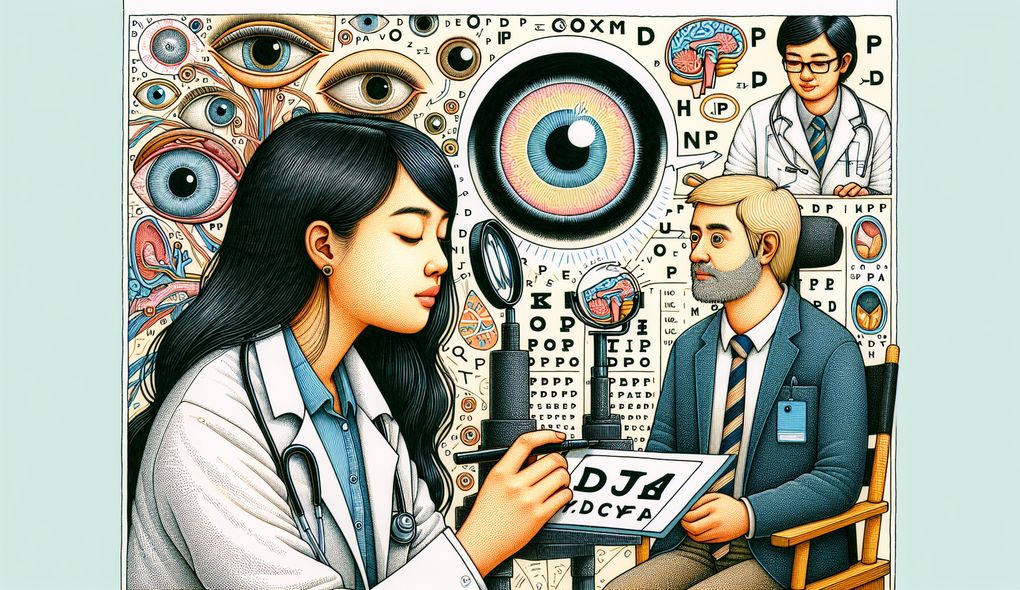Have you ever faced a situation where a patient was dissatisfied with your care? How did you handle it?
JUNIOR LEVEL

Sample answer to the question:
Yes, I have faced a situation where a patient was dissatisfied with my care. It was during my residency in ophthalmology when I was treating a patient with cataracts. The patient had high expectations and was unhappy with the outcome of the surgery. I handled it by first empathizing with the patient and acknowledging their concerns. I then carefully explained the potential risks and limitations of the procedure and reassured them that we could explore further treatment options. I involved a senior ophthalmologist in the discussion to address the patient's concerns. We developed a comprehensive treatment plan and scheduled a follow-up visit to monitor the patient's progress. By actively listening to the patient's feedback and involving them in the decision-making process, we were able to improve their satisfaction and achieve a better outcome.
Here is a more solid answer:
Yes, I have encountered a situation where a patient expressed dissatisfaction with the care I provided. It was during my second year of residency when I was responsible for managing a patient with glaucoma. Despite my best efforts to educate and treat the patient, they felt their condition was not improving. I approached the situation by actively listening to the patient's concerns and empathizing with their frustration. I conducted a thorough reevaluation of their condition and sought guidance from my supervising ophthalmologist. Together, we decided to modify the treatment plan and explore alternative options, such as laser therapy. I made sure to explain the rationale behind the changes to the patient and ensured their understanding of the revised approach. Additionally, I scheduled frequent follow-up visits to closely monitor their progress and address any further concerns. By demonstrating my commitment to the patient's well-being and actively involving them in decision-making, we were able to improve the patient's satisfaction and achieve positive outcomes.
Why is this a more solid answer?
The solid answer provides a more detailed account of a specific situation where the candidate faced a dissatisfied patient and how they handled it. It includes specific examples of their patient care skills, such as reevaluation, collaboration with a senior ophthalmologist, and effective communication with the patient. However, it could provide additional information on how the candidate managed the patient's expectations and addressed their concerns.
An example of a exceptional answer:
Yes, I have encountered a situation where a patient expressed dissatisfaction with my care, and I believe it is crucial to address such scenarios promptly and effectively. During my residency, I had a patient who presented with diabetic retinopathy and required regular laser therapy. Despite consistent treatment, the patient felt their vision was not improving as expected, leading to frustration and dissatisfaction. To handle the situation, I took a comprehensive approach. Firstly, I proactively engaged in open and empathetic communication with the patient to understand their specific concerns and expectations. I then conducted a thorough assessment of their condition and reviewed their medical history to identify any underlying factors contributing to the lack of progress. Next, I collaborated with a team of ophthalmologists to discuss the case and seek their expertise. Through this collaboration, we were able to reassess the treatment plan and introduce additional strategies to improve the patient's outcomes. Furthermore, I took the time to educate the patient on the nature of their condition and the potential challenges associated with treatment. By managing their expectations and involving them in the decision-making process, we established a stronger patient-doctor relationship based on trust and transparency. We scheduled regular follow-up appointments to monitor the patient's progress and address any concerns promptly. Ultimately, our diligence and commitment paid off, as the patient's vision gradually improved, and their satisfaction with the care provided increased significantly.
Why is this an exceptional answer?
The exceptional answer goes into great detail about a specific situation where the candidate faced a dissatisfied patient and how they addressed it. It clearly demonstrates their ability to apply a comprehensive approach, including active communication, collaboration with a team, critical assessment, and patient education. The answer also emphasizes the importance of managing patient expectations and building a strong patient-doctor relationship. Overall, the answer showcases the candidate's excellent patient care, communication, and problem-solving skills.
How to prepare for this question:
- Reflect on past experiences where patients expressed dissatisfaction with your care and how you handled those situations.
- Review effective communication techniques, such as active listening, empathy, and clear explanation of medical conditions and treatment plans.
- Familiarize yourself with common causes of patient dissatisfaction in ophthalmology and strategies to address them.
- Enhance your knowledge of advancements and best practices in ophthalmology to ensure you can provide the highest quality of care to patients.
- Consider seeking feedback from peers or mentors on your patient care skills and areas where you can improve.
What are interviewers evaluating with this question?
- Patient care
- Communication

